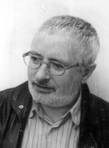The pragmatist philosopher becomes exemplary of the power of positive thinking in this flawed study, full of cracker-barrel wisdom
From Plato to Heidegger, philosophers have taken a dim view of the common people. That, however, began to change when the common people turned into a mass-reading public hungry for a little philosophy, under the delusion that the subject has something interesting to say about the meaning of life. A number of pop philosophers emerged to meet this demand, some of them admirable such as Simon Blackburn, others more like the slightly sozzled character you bump into in a bar who thinks the stars spell out some momentous statement. The line between the pop and the pub philosopher is easy to cross.
One way of making things easier on your audience is to avoid a philosopher’s ideas and talk about his or her life instead. Very few readers understand the synthetic a priori or the law of the excluded middle, but a lot of them know about falling in love or what it feels like to be miserable. It helps, however, if the life of the thinker in question is reasonably exciting. This was certainly the case with Ludwig Wittgenstein, who fought in the first world war, had a number of illegal gay relationships, lived in a hut on a Norwegian fiord and had to do a runner as a village schoolmaster when he struck a pupil across the face.
'Rigorous' is the last adjective one would use to characterise this book
It's no accident that Henry James is among the finest stylists of English language, given William’s supple, graceful prose
Continue reading...
Published on May 06, 2020 23:30
 newest »
newest »
 newest »
newest »
 I'm sure I got much more enjoyment out of reading this review than I would have received from the book. Thank you, Terry.
I'm sure I got much more enjoyment out of reading this review than I would have received from the book. Thank you, Terry.



